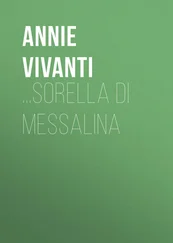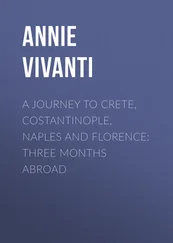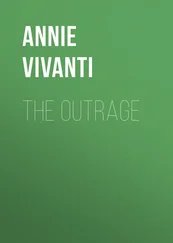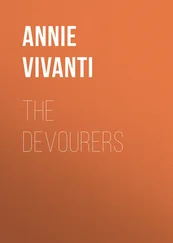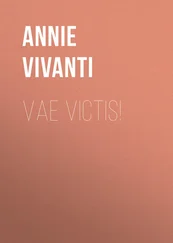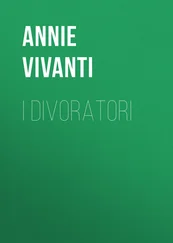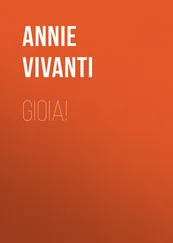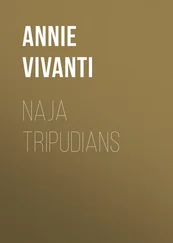Annie Vivanti - Marie Tarnowska
Здесь есть возможность читать онлайн «Annie Vivanti - Marie Tarnowska» — ознакомительный отрывок электронной книги совершенно бесплатно, а после прочтения отрывка купить полную версию. В некоторых случаях можно слушать аудио, скачать через торрент в формате fb2 и присутствует краткое содержание. Жанр: Биографии и Мемуары, История, foreign_edu, foreign_antique, foreign_prose, на английском языке. Описание произведения, (предисловие) а так же отзывы посетителей доступны на портале библиотеки ЛибКат.
- Название:Marie Tarnowska
- Автор:
- Жанр:
- Год:неизвестен
- ISBN:нет данных
- Рейтинг книги:3 / 5. Голосов: 1
-
Избранное:Добавить в избранное
- Отзывы:
-
Ваша оценка:
- 60
- 1
- 2
- 3
- 4
- 5
Marie Tarnowska: краткое содержание, описание и аннотация
Предлагаем к чтению аннотацию, описание, краткое содержание или предисловие (зависит от того, что написал сам автор книги «Marie Tarnowska»). Если вы не нашли необходимую информацию о книге — напишите в комментариях, мы постараемся отыскать её.
Marie Tarnowska — читать онлайн ознакомительный отрывок
Ниже представлен текст книги, разбитый по страницам. Система сохранения места последней прочитанной страницы, позволяет с удобством читать онлайн бесплатно книгу «Marie Tarnowska», без необходимости каждый раз заново искать на чём Вы остановились. Поставьте закладку, и сможете в любой момент перейти на страницу, на которой закончили чтение.
Интервал:
Закладка:
And now little Peter had finished. Little Peter lay solemn and magnificent in the chambre ardente where his dead ancestors had lain solemn and magnificent before him. “Implacable” indeed he lay, unmoved by the tears of his mother and father; his lofty brow was marble; his fair eyelashes lowered over his quenched and upturned eyes.
When I thought of him thus I felt afraid.
And it seemed strange to be afraid of little Peter.
IX
After we had crossed the Russian frontier another thought—a thought that filled me with unspeakable happiness—put all others to flight: my child! I should see my child again! All our relations would certainly be assembled at the Tarnowskys' house, so I should find my parents and my little Tioka there too. The image of the living child soon displaced the tragic memory of the dead youth. As the train sped towards Kieff my fever of gladness and impatience increased. Yes, to-morrow would be poor Peter's funeral, but this very evening I should clasp little Tioka in my arms!
Raising my eyes, I saw that Vassili was looking at me with a scowl. “I have been watching you for some time,” he said. “Heartless creature that you are, to laugh—to laugh in the face of death.”
“I was thinking of Tioka,” I stammered. Vassili did not reply. But in the depths of my heart joy sang and whispered like a hidden fountain.
Thus, inwardly rejoicing, did I enter the house of death and hasten to the dark-red room—the very scene of Peter's suicide—in which they had placed my baby's cradle; thus, while others mourned with prayers and tears in the gloomy death-chamber, I ran across the sun-filled garden holding my infant to my breast. I hid myself with him in the orchard and laughed and laughed aloud, as I kissed his starry eyes and his tiny, flower-like mouth.
But Death, the Black Visitor, had entered my life. Little Peter had shown him the way, had opened the door to him.
From that day forward the dread Intruder never forsook my threshold.
Death, lurking at my door in terrifying silence, stretched out his hand at intervals and clutched some one belonging to me. Generally it was with a swift gesture—a fell disease or a pistol-shot—that he struck down and flung into the darkness those I loved.
But towards me Death comes with a slower, more deliberate tread. For years, ever since the birth of my little daughter Tania,—my white rosebud born midst the snows of a dreary winter in Kieff—I have felt Death creeping towards me, slow, insidious, inexorable, holding in his hand a knot of serpents, each of which will fasten its poisoned fangs upon me. Disease, the venomous snake, will hide in my bosom and thrust its way through my veins. The heavy snake of Grief will coil round my heart and crush me in its spirals. Insanity will glide into my brain and nest there. Then—last but not least horrible—the little glass viper, the syringe of Pravaz, whose fang is a hollow needle, will draw me into the thraldom of its virulent grip. It will spurt its venom into my blood. The bland balm of coca, the milky juice of the poppy, will flow into my veins, soothing, assuaging, lulling me into sleep and forgetfulness—only to waken me in renewed agony of suffering to a renewed bite of the envenomed fang. For the only antidote to the poison of narcotics is the narcotic itself, the only alleviation to the tearing agony of the poison generated by morphia is morphia again. And so the fatal sequence swings on forever, in ever-widening circles of torment....
X
From Alexis Bozevsky to Stepan Nebrasoff.
Kieff, Thursday .Dear Stepan, my good Friend,—
I am here in the house of your cousin, Dr. Stahl, who seems to have grown longer and leaner than ever. He is a mere shadow. It is here that your letter reaches me. You tell me to write to you about myself. To-day, the 15th of October, 1903, I am twenty-four years old. What gift will Destiny give me for my birthday? Love? Wealth? A hero's death?
Your cousin Stahl, in his cavernous voice that seems to come echoing up from underground, says that the gift of Destiny is precisely these four-and-twenty years of mine! Perhaps he is right. I feel them eddying in my blood like four-and-twenty cyclones.
The world is a whirlwind of youth.
Kaufmann this morning lent me his sorrel stallion—the finest horse in the Empire—and I had a gallop along the bastions. All the women looked at me. In a phaeton I saw the brazen and beautiful Princess Theodora, blonde and torrid as a Mexican landscape. She was resplendent in amethyst and heliotrope, her red locks flaming to the sun; no one but a princess would permit herself to display such a riot of violent colors.
Soon afterwards I saw Vera Voroklizkaja, reclining in her carriage, aloof and severe as a vestal virgin; her glossy black tresses parted over her brow enclosed the narrow oval of her face like soft black wings. Beside her sat little Miriam Grey, clothed in her youthfulness as in an armor of roses. The beauty of all these women courses through my blood like sun and wine.
Upon my word life is an excellent institution.
And you—what are you doing?
Ever yours, Bozevsky.Stepan, Stepan, Stepan!—
I am in love! Madly, sublimely, tragically in love! This morning I went to the parade-ground as in a dream; I found myself speaking to the colonel in a gentle winning voice that was perfectly ludicrous. When I drilled my company I could hear myself giving the words of command in an imploring tone which I still blush to remember. I am obsessed, hallucinated; there floats before my eyes a slender, ethereal creature, with red lips that never smile, and hair that looks like a cataract of champagne.
Stahl introduced me to her yesterday, here at his house. “Come,” he said, taking me by the arm. “You are going to make the acquaintance of a superior being, soft of voice and sad of countenance, who bears the gentle name of Marie.”
“Let me off,” I replied skeptically. “Sad and superior beings are not to my liking.”
“You will like this one,” said Stahl.
“I know I shan't,” I replied curtly. I saw Stahl's eye warn me, and, turning, found myself face to face with the subject of our conversation, a tall, flower-like vision, with translucent eyes and a mystic inscrutable face.
I knew she had overheard me, and as I bowed low before her, she said: “That you should like me is of no importance. What really matters is that I should be pleased with you.”
Her beauty and the scornful levity of her words struck me strangely. “Madame,” and I was surprised to feel that I spoke with sincerity, “to please you will be henceforward the highest aim of my desire.”
She looked at me a moment; then she spoke quietly: “You have attained your aim.”
She turned and left me. I stood thunderstruck by the brief and daring reply and by the flash of that clear gaze. She had spoken the words without a smile.
She did not address me during the rest of the evening. When she left, she barely glanced at me and vouchsafed neither smile nor greeting.
Just for an instant she raised her black-fringed eyes and gazed at me; then her lashes fell; and it was as if a light had been blown out.
I am in love with her! Madly, divinely, desperately in love. Ah, Stepan, love—what an ecstasy and what a disaster!
Your Bozevsky.It was Dr. Stahl, the “Satanic Stahl,” who got these letters from his cousin Stepan Nebrasoff, and showed them to me. They bewildered and troubled me. What? Was I really so attractive and so perturbing in the eyes of the gallant young Pole—the handsomest officer in the Imperial Guard? I repeated to myself his disquieting epithets: “flower-like,” “ethereal,” “inscrutable”; and in my room at night when I loosened my hair, I wondered: “Does it really look like a cataract of champagne?” When I went out I never smiled, even when I felt inclined to do so, since my gravity had seemed so charming to him.
Читать дальшеИнтервал:
Закладка:
Похожие книги на «Marie Tarnowska»
Представляем Вашему вниманию похожие книги на «Marie Tarnowska» списком для выбора. Мы отобрали схожую по названию и смыслу литературу в надежде предоставить читателям больше вариантов отыскать новые, интересные, ещё непрочитанные произведения.
Обсуждение, отзывы о книге «Marie Tarnowska» и просто собственные мнения читателей. Оставьте ваши комментарии, напишите, что Вы думаете о произведении, его смысле или главных героях. Укажите что конкретно понравилось, а что нет, и почему Вы так считаете.
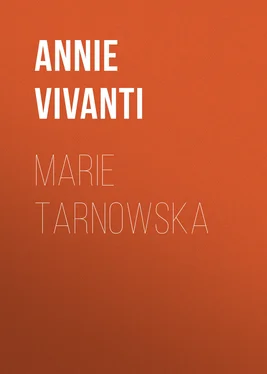
![Fredrik Backman - Britt-Marie Was Here [Britt-Marie var här]](/books/61260/fredrik-backman-britt-marie-was-here-britt-thumb.webp)


